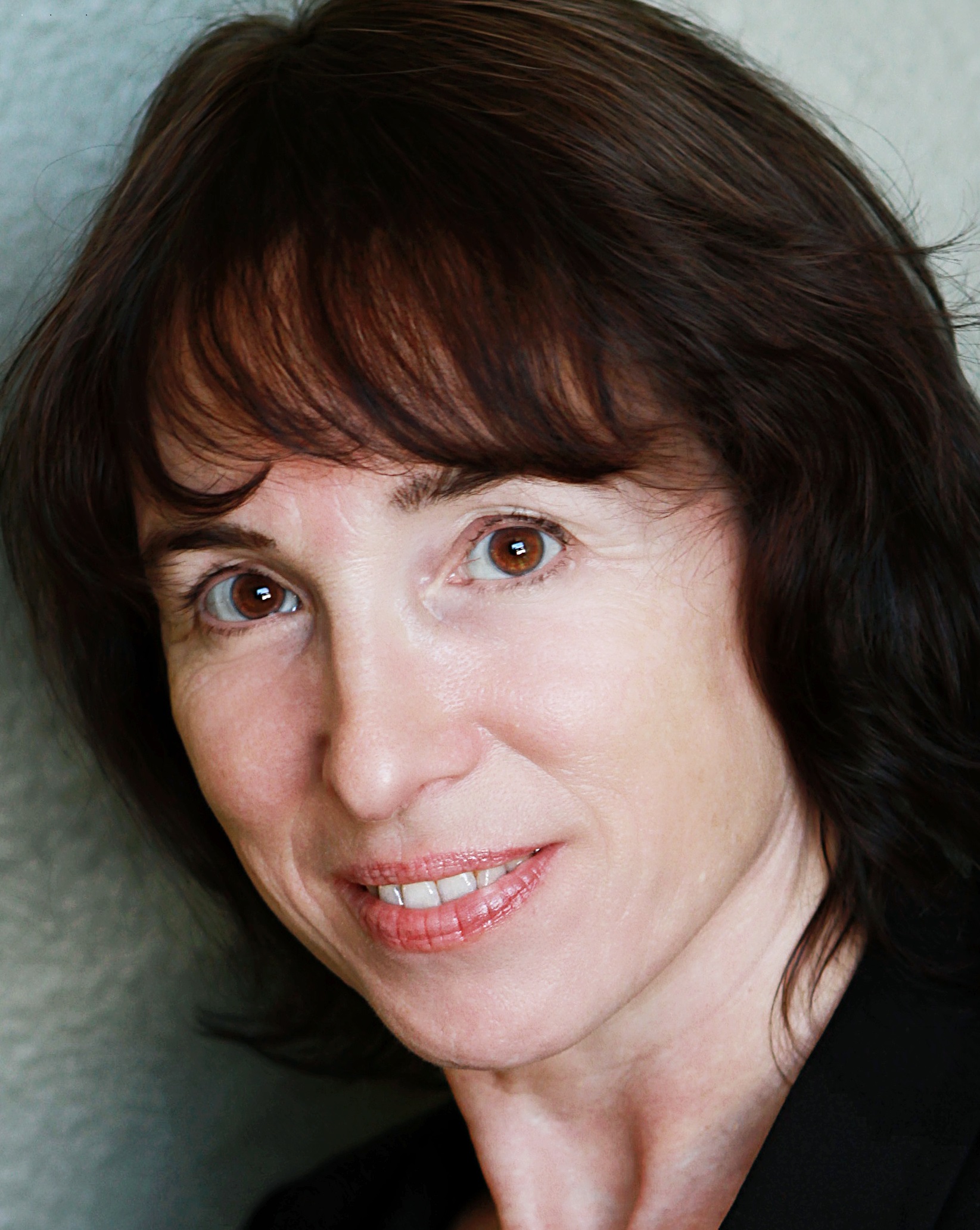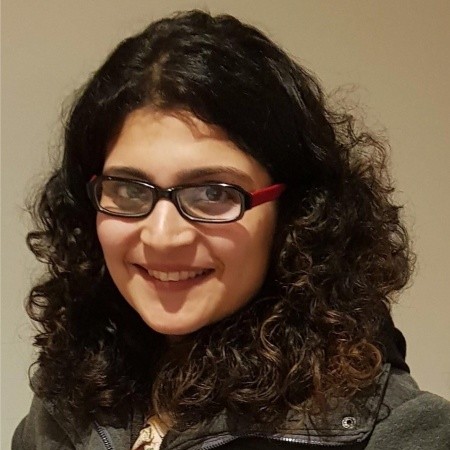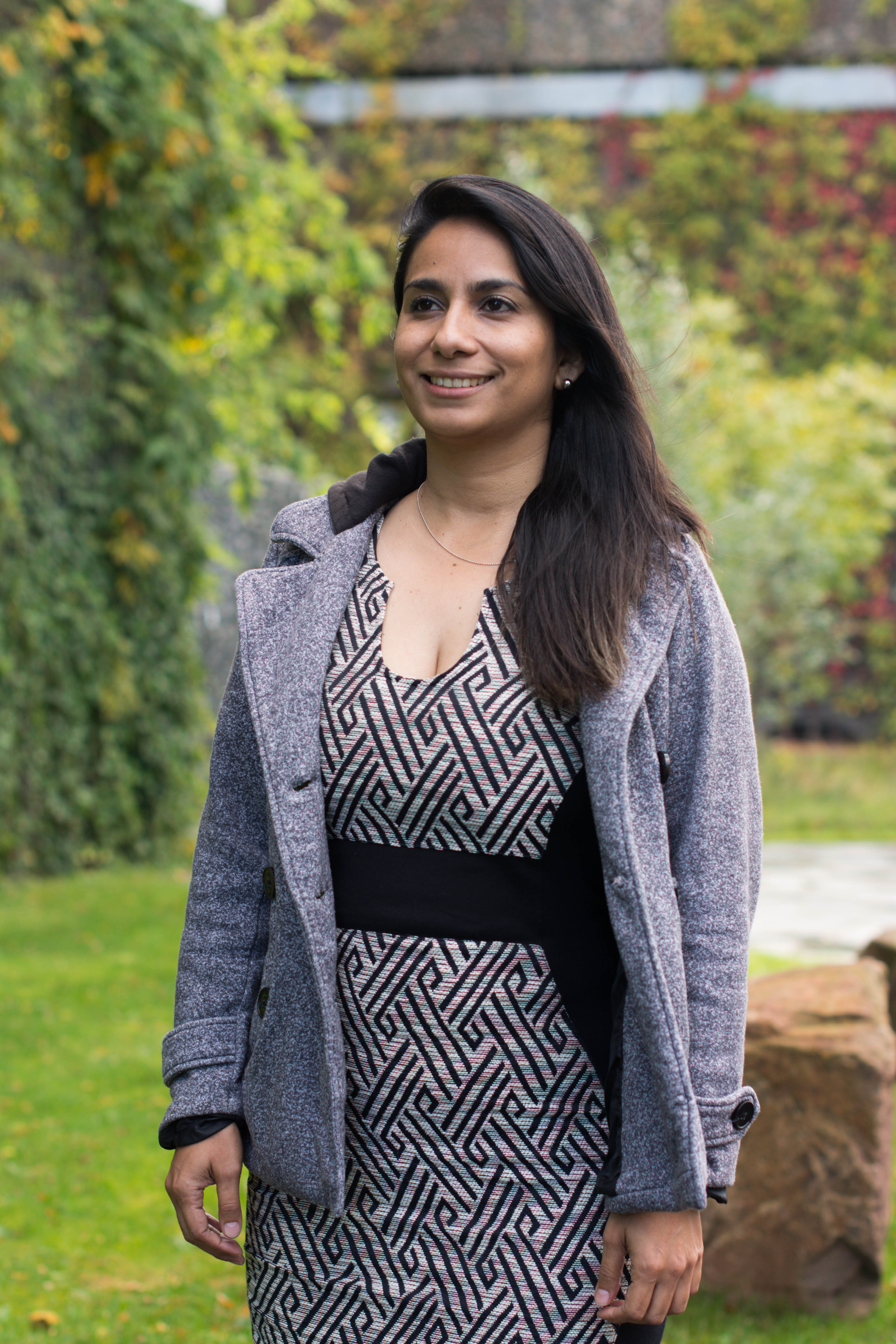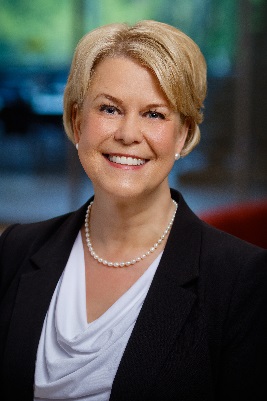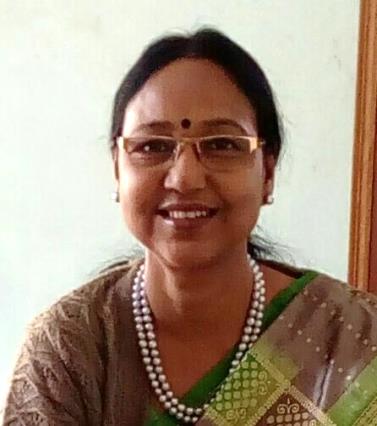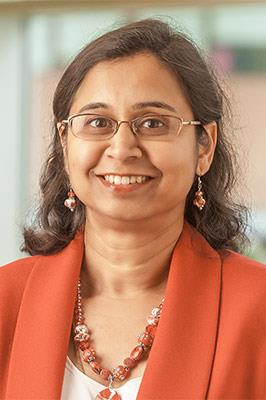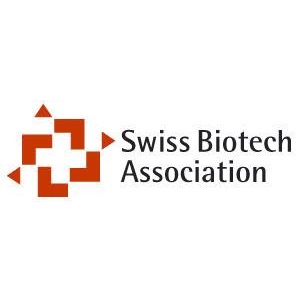Theme: Furtherance and Innovations in Cancer Care
Cancer Congress 2018
Details of Cancer Cogress 2018 in USA:
Conference Series LLC Ltd is organizing Cancer Congress in 2018 at San Diego, USA. We organize Cancer Meetings in the fields related to, Cancer Biology, Targeted Cancer Therapies, Natural Methods for Cancer Treatment, Cancer Bioinformatics, Cancer Pharmacology and Precision Medicion etc.
Conference Name |
Place |
Date |
|---|---|---|
Cancer Congress 2018 |
San Diego, California, USA |
Sep 17-18, 2018 |
Conference Series LLC Ltd invites all potential participants across the world to join the 28th International Conference on Cancer Research and Anticancer Therapies which is going to be held during September 17-18, 2018 San Diego, USA.
Cancer Congress 2018 is a trending event which brings together efficient international academic scientists, young researchers and students making the congress a perfect platform to share experiences, gain and evaluate emerging technologies in Cancer Treatment and Radiology across the globe. Initiation of cross-border co-operations between scientists and institutions will also be facilitated. The main theme of the Conference is “Furtherance and Innovations in Cancer Care”.
Cancers are a large family of diseases which involve abnormal cell growth with the potential to invade or spread to other parts of the body. A neoplasm or tumor is a group of cells which have undergone unregulated and uncontrolled growth and will often form a mass or lump, but may be distributed diffusely.
Cancer research extensively ranges from epidemiology, molecular level research to the performance of clinical trials to evaluate and compare applications of the various cancer treatments. Many treatment options for cancer exist. The primary ones include surgery, chemotherapy, radiation therapy, hormonal therapy, targeted therapy, palliative care and immunotherapy and combined treatment modalities such as chemo-radiotherapy.
Conference Series LLC Ltd organizes a conference series of 1000+ Global Events inclusive of 300+ Conferences, 500+ Upcoming and Previous Symposiums and Workshops in USA, Europe and Asia with support from 1000 more scientific societies and published 700+ Open access journals which contains over 30000 eminent personalities, reputed scientists as Editorial Board Members.
Target Audience:
Radiology and Oncology Students, Cancer Researchers, Scientists, Radiology and Oncology Researchers, Radiology and Oncology Faculty, Medical Colleges, Scientists, Doctors, Professors, Oncology Lecturers, Researchers, Pharmaceutical Industries, Healthcare Industries, Directors of Association and Societies, Cancer and Radiology Training Institutes, Staff development educators.
Track 1
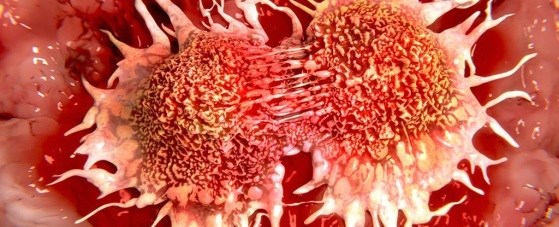
Cancer Biology: Cancer cells have the capacity to divide in an uncontrollable manner. Cancer cells ignore signals that will be active in stopping the cell division, apoptosis and cell shedding. In a cancer cell, most of the genes metamorphose into a defective one. Cancerous tumors can spread into, or invade, nearby tissues so they are the cause of malignancy. By the progression of these tumors, some cancer cells can be fragmented and travel to other parts in the body through the plasma or the lymphatic system and forms another tumor cell far away from the original tumor which is called metastasis. Cancer pathogenesis deals with the molecular, biochemical, and cell-based approaches are included in cancer cell biology to better understand. Cancer Genetics deals with the cancer growth due to genetic changes, if the changes are present in germ cells it can be inherited from parents to off- springs. Tumor Immunology plays an important role in decision of new approaches for cancer therapeutics. Cancer Science Conferences articulate the evolutions in the cancer science field.
Track 2 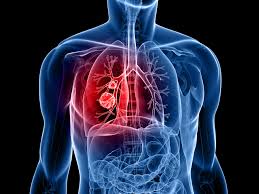
Organ Specific Cancer: Organ Specific Cancers are cancers named based on the location of cancer in the body organ. Its incidence is showing an increasing trend in various parts of the earth and has been a significant public health problem despite advances in the understanding of the molecular and cellular events that underlie.
Track 3
Cancer Screening: Unlike diagnostic efforts prompted by symptoms and medical signs, cancer screening involves efforts to detect cancer after it has formed, but before any noticeable symptoms appear. This may involve physical examination, blood or urine tests or medical imaging. 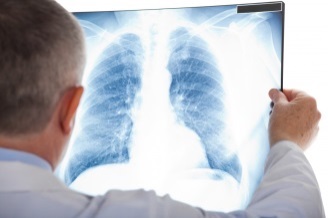
Cancer screening is not available for many types of cancers. Even when tests are available, they may not be recommended for everyone. Universal screening or mass screening involves screening everyone. Selective screening identifies people who are at higher risk, such as people with a family history. Several factors are considered to determine whether the benefits of screening outweigh the risks and the costs of screening. These factors include:
-
Possible harms from the screening test: for example, X-ray images involve exposure to potentially harmful ionizing radiation
-
The likelihood of the test correctly identifying cancer
-
The likelihood that cancer is present: Screening is not normally useful for rare cancers.
Track 4
Cancer Bioinformatics: It is another interdisciplinary region including organic, measurable and computational sciences. Now a day’s bioinformatics innovation is for the most part utilized for the special growth investigation. Ribosomal S6 protein kinase 4 (RSK4) is a vital novel tumor silencer that hinders breast cancer cell development 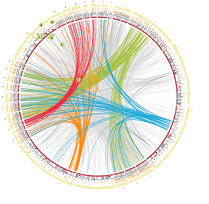 and initiates senescence. Utilizing pair proclivity cleaning, we got protein buildings that associated with RSK4 or RSK4m. Mass range examination was performed to distinguish the acquired protein edifices, and bioinformatics investigation was performed.
and initiates senescence. Utilizing pair proclivity cleaning, we got protein buildings that associated with RSK4 or RSK4m. Mass range examination was performed to distinguish the acquired protein edifices, and bioinformatics investigation was performed.
- Cancer bioinformatics
- Translational bioinformatics
- Bioinformatics gene
- Bioinformatics drug
- Biology bioinformatics
Track 5
Cancer Treatment Research: Cancer research about is fundamental research into malignancy to recognize causes and create techniques for anticipation, conclusion, treatment, and cure. Beginning in the mid-1990s, the emphasis in clinical disease look into moved towards treatments got from biotechnology examine, for example, tumor immunotherapy and quality treatment. Research into the cancer for tumor includes a wide range of orders including hereditary qualities, diet, ecological variables (i.e. synthetic cancer-causing agents).
Track 6
Natural methods for Cancer treatment: Therapies such as acupuncture and massage can be a useful complement to conventional methods of treating cancer. But “cure-all” solutions that claim to eliminate disease naturally aren’t proven to work — and can actually be dangerous for people with cancer. Although it's easier to prevent cancer 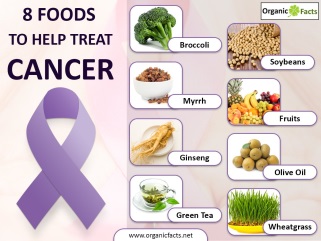 than to reverse it once it has taken hold, it is nevertheless reversible with holistic therapies that address imbalances of the body, mind and spirit. Herbal medicine uses plants, or mixtures of plant extracts, to treat illness and promote health.
than to reverse it once it has taken hold, it is nevertheless reversible with holistic therapies that address imbalances of the body, mind and spirit. Herbal medicine uses plants, or mixtures of plant extracts, to treat illness and promote health.
- Proper nutrition and clean water
- Detoxification
- Immune building
- Oxygen therapy
- Natural chemotherapies
- Lifestyle changes: adequate sleep, sunlight & exercise
- A positive attitude
- Spiritual cleansing
Track 7
Cancer Therapy: There are numerous medications for Cancer. The objective of any treatment is to remove carcinogenic cells to attempt to guarantee malignancy doesn't return. A great deal of trial malignancy medicines are likewise a work in progress. The metastatic cancers can be best treated with targeted therapy, in which the location of cancer can be targeted easily. At times this can be capable by surgery, radiotherapy and chemotherapy however the weakness of growths to contaminate nearby tissue or to spread to inaccessible locales by minute metastasis as a rule confines its viability. Biopsy is another choice for tumor treatment.
Conference on Cancer Research and Anticancer Therapies believes in the potential to procure mastery in cancer research field.
Track 8
Targeted Cancer Therapy: Targeted therapy is a special type of chemotherapy that exploits differences between normal cells and tumor cells. It's occasionally utilized alone, however frequently other disease medicines are utilized with targeted therapy.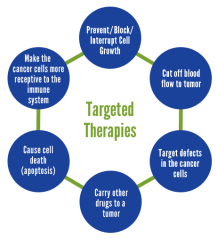
As the name proposes, targeted therapies interfere with particular proteins engaged with tumorigenesis. Instead of utilizing expansive base growth medications, concentrating on particular atomic changes which are one of a kind to a specific disease, directed tumor treatments might be all the more remedially gainful for some malignancies, including lung, colorectal, breast, lymphoma and leukaemia.
Targeted drugs can work to:
- Block or turn off chemical signals that tell the cancer cell to grow and divide
- Change proteins within the cancer cells so the cells die
- Stop making new blood vessels to feed the cancer cells
- Trigger your immune system to kill the cancer cells
- Carry toxins to the cancer cells to kill them, but not normal cells
Track 9
Cancer Surgery: Surgery is the removal of the tumor and surrounding tissue during an operation. A doctor who specializes in treating cancer using surgery is called a surgical oncologist. Surgery is the oldest type of cancer therapy and remains an effective treatment for many types of cancer today. For most types of cancer, a biopsy is the only way to make a definitive diagnosis. During a surgical biopsy, the surgeon makes a cut called an incision in the skin. Then, he or she removes some or all of the suspicious tissue. Tumor removal, also called curative or primary surgery. Surgery is most commonly used to remove the tumor and some of the surrounding healthy tissue. The tissue surrounding the tumor is called the margin.
specializes in treating cancer using surgery is called a surgical oncologist. Surgery is the oldest type of cancer therapy and remains an effective treatment for many types of cancer today. For most types of cancer, a biopsy is the only way to make a definitive diagnosis. During a surgical biopsy, the surgeon makes a cut called an incision in the skin. Then, he or she removes some or all of the suspicious tissue. Tumor removal, also called curative or primary surgery. Surgery is most commonly used to remove the tumor and some of the surrounding healthy tissue. The tissue surrounding the tumor is called the margin.
Track 10
Stem Cell Therapy: In this therapy, the stem cells that give rise to the different blood cells in the body are transplanted into the bone marrow of the patient, where they regenerate the blood. This is a vital and often lifesaving treatment because chemotherapy destroys the bone marrow alongside cancer cells and the blood cells must be replenished for the patient's treatment to be successful.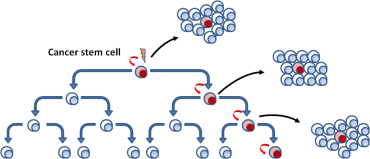
In a stem cell transplant, healthy blood-forming stem cells are injected through a needle in the veins. The types of Stem Cell Transplants are:
- Autologous, which means the stem cells come from you, the patient
- Allogeneic, which means the stem cells come from someone else. The donor may be a blood relative but can also be someone who is not related.
- Syngeneic, which means the stem cells come from your identical twin, if you have one
Track 11
Cancer Immunotherapy: Over the most recent couple of decades immunotherapy has turned into a critical piece of treating a few sorts of tumor. Immunotherapy is a kind of natural treatment which is a sort of treatment that utilizes substances produced using living beings to treat cancer. The immune system helps your body fight infections and other diseases. It is comprised of white blood cells and organs and tissues of the lymph system. The 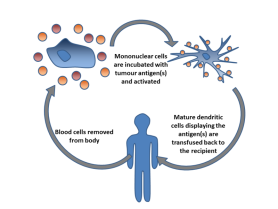 main types of immunotherapy now being used to treat cancer include:
main types of immunotherapy now being used to treat cancer include:
Monoclonal antibodies: These are man-made versions of immune system proteins. Antibodies can be very useful in treating cancer because they can be designed to attack a very specific part of a cancer cell.
Immune checkpoint inhibitors: These drugs basically take the ‘brakes’ off the immune system, which helps it recognize and attack cancer cells.
Cancer vaccines: Vaccines are substances put into the body to start an immune response against certain diseases. We usually think of them as being given to healthy people to help prevent infections. But some vaccines can help prevent or treat cancer.
Other, Non-specific immunotherapies: These treatments boost the immune system in a general way, but this can still help the immune system attack cancer cells.
Track 12
Hormone Therapy: Hormone therapy is a cancer treatment that slows down the growth of cancer that uses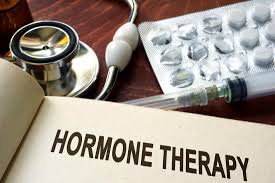 hormones to grow. Hormone therapy is also called hormonal therapy, hormone treatment, or endocrine therapy. Some hormones encourage the growth of some cancers, such as breast and prostate. But, in some cases, they may kill, slow or stop cancer cells from growing. When used with other treatments, hormone therapy can:
hormones to grow. Hormone therapy is also called hormonal therapy, hormone treatment, or endocrine therapy. Some hormones encourage the growth of some cancers, such as breast and prostate. But, in some cases, they may kill, slow or stop cancer cells from growing. When used with other treatments, hormone therapy can:
- Make a tumor smaller before surgery or radiation therapy. This is called neo-adjuvant therapy.
- Lower the risk that cancer will come back after the main treatment. This is called adjuvant therapy.
- Destroy cancer cells that have returned or spread to other parts of your body.
Track 13
Radiation Therapy: Radiation therapy occurs in the presence of biochemical recurrence after prostatectomy to assess whether this results in shifts of histopathological prognostic factors such as the Gleason Score using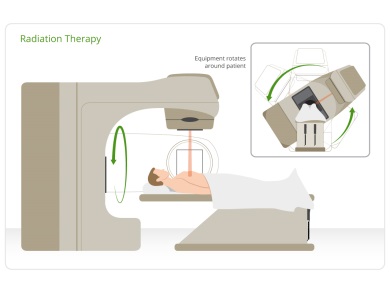 ionizing radiation (such as megavoltage X-rays or radionuclides) in the treatment of cancer. The field of radiation oncology covers the integration of radiation therapy into multimodal treatment approaches. Radiation Oncology provides an open access forum for researchers and clinicians involved in the management and treatment of cancer patients, bringing together the latest research and advances in the field. The types of radiation therapy are:
ionizing radiation (such as megavoltage X-rays or radionuclides) in the treatment of cancer. The field of radiation oncology covers the integration of radiation therapy into multimodal treatment approaches. Radiation Oncology provides an open access forum for researchers and clinicians involved in the management and treatment of cancer patients, bringing together the latest research and advances in the field. The types of radiation therapy are:
- Radiation therapy
- Stereotactic body radiation therapy (SBRT)
- Intensity Modulated Radiotherapy (IMRT)
- Intravascular Brachytherapy
- Prostate Seed Implant
Track 14
Cancer Pharmacology: Pharmacology deals with action of drug in the body. Cancer Pharmacology deals 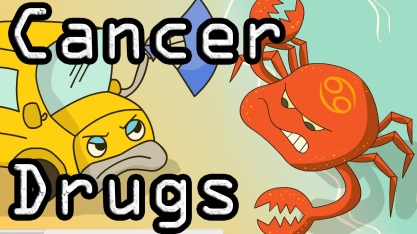 with the drugs used in cancer treatment, their mechanism of action, their side effects and their mode of elimination. Combination of Drugs and their efficacy has been a major choice of research interest.
with the drugs used in cancer treatment, their mechanism of action, their side effects and their mode of elimination. Combination of Drugs and their efficacy has been a major choice of research interest.
- Cancer Drugs
- Cancer Drugs Absorption and Distribution
- Cancer Drugs Metabolism
- Side effects Of Synthetic Drugs in cancer treatment
Track 15
Cancer Biomarkers: The Cancer Biomarkers are the substance that acts as an indicator of the cancer site in the body. Usually the biomarker is a computable indicator of biological state in the body; it is a molecule which is unleashed by the tumor or in response to the presence of tumor. The biomarkers are used for the assessment of risk for cancer patients. The cancer biomarkers specifically related with genetic mutations or epigenetic alteration always gives the measurable way to find the tumor cells. The most advantageous ability of biomarker is that they can be used as a diagnostic tool, determines whether the tumor is localized or metastatic in nature. The cancer prognosis can also be determined by the biomarkers. Some examples of Biomarkers:
- Tumor Suppressors Lost in Cancer, e.g.: BRCA1, BRCA2
- RNA, e.g.: mRNA, microRNA [60]
- Proteins found in body fluids or tissue, e.g.:Prostate-specific antigen, and CA-125
Track 16
Precision Medicine: Precision medicine is an expression that is regularly used to depict how genetic data about a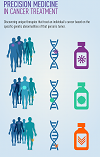 person’s disease is being utilized to treat their diseases. Cancer is an infection of the genome and as more is found out about growth tumors, the more we are finding that every tumor has its own arrangement of hereditary changes. Understanding the hereditary changes that are in disease cells is prompting more powerful treatment techniques that are custom fitted to the genetic profile of every patient's growth. Precision medicine helps doctors select treatments that are most likely to help patients based on a genetic understanding of their disease.
person’s disease is being utilized to treat their diseases. Cancer is an infection of the genome and as more is found out about growth tumors, the more we are finding that every tumor has its own arrangement of hereditary changes. Understanding the hereditary changes that are in disease cells is prompting more powerful treatment techniques that are custom fitted to the genetic profile of every patient's growth. Precision medicine helps doctors select treatments that are most likely to help patients based on a genetic understanding of their disease.
Track 17
Nanotechnology: Nanotechnology an extremely wide and versatile field, can affect many of its composing disciplines in amazingly innovative and unpredictable ways. In fact, nanotechnology and the ideas and methods that it encompasses can be applied to almost any problem that leading researchers face today. Even the most seemingly impossible problems like HIV and cancer become only obstacles in the path to solutions. Nanotechnology can be used in several clinical applications. Nanotechnology is used in the diagnosing, detecting and treating of the tumor cells.
- Function of Tumor Microenvironment in Cancer Progression
- Function of Chemo Drugs in cancer
- Stealth Nanoparticles and Tumor Penetrating Peptides
- Vector-host interactions governing epidemiology
- New Nano-materials in treatment of cancer
- Imaging and drug delivery using Theranostics nanoparticles
- Early Diagnosis and Imaging of cancer using nanoparticles
- Advances in Nanotechnology
Track 18
Oncology Nursing: An oncology nurse is a nursing professional who specializes in caring for people with cancer.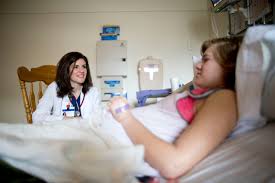 Oncology nurses often serve as your first line of communication, and help coordinate the many aspects of your care throughout cancer treatment. Nursing Management is an important chapter of the nursing education. The nursing professionals in radiation oncology field will be highly demandable. Oncology nursing professionals mostly gives the palliative care for patients and comforts them. Cancer Congress 2018 will create a new revolution in cancer science and cancer nursing field.
Oncology nurses often serve as your first line of communication, and help coordinate the many aspects of your care throughout cancer treatment. Nursing Management is an important chapter of the nursing education. The nursing professionals in radiation oncology field will be highly demandable. Oncology nursing professionals mostly gives the palliative care for patients and comforts them. Cancer Congress 2018 will create a new revolution in cancer science and cancer nursing field.
- Nursing Education
- Nursing Management
- Nursing Law
- Clinical Nursing
- Critical Care
- Continuing Nursing Education
Track 19
Chemotherapy: Chemotherapy(Chemo) is a type of treatment that includes a medication or combination of medications to treat cancer. The goal of chemo is to stop or slow the growth of cancer cells. Chemo is considered a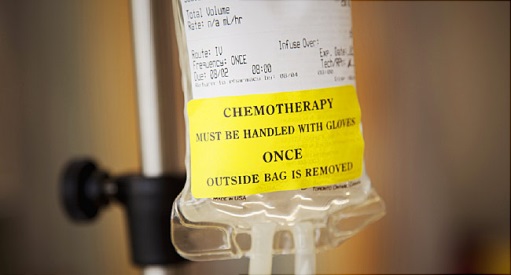 systemic therapy. This means it may affect your entire body. Chemo medications attack rapidly growing cancer cells, but they can also affect healthy cells that grow rapidly. Chemotherapy is the utilization of any medication to treat any disease. In any case, to a great many people, the word chemotherapy implies drugs utilized for disease treatment. It's frequently abbreviated to "chemo." Surgery and radiation treatment remove, murder, or harm disease cells in a specific region, yet chemo can work all through the entire body. This implies chemo can destroy malignancy cells that have spread (metastasized) to parts of the body far from the first (essential) tumor.
systemic therapy. This means it may affect your entire body. Chemo medications attack rapidly growing cancer cells, but they can also affect healthy cells that grow rapidly. Chemotherapy is the utilization of any medication to treat any disease. In any case, to a great many people, the word chemotherapy implies drugs utilized for disease treatment. It's frequently abbreviated to "chemo." Surgery and radiation treatment remove, murder, or harm disease cells in a specific region, yet chemo can work all through the entire body. This implies chemo can destroy malignancy cells that have spread (metastasized) to parts of the body far from the first (essential) tumor.
Track 20
Cancer Case Reports: The case reports are something which gives thorough details about the diagnosis, treatments and further follow ups, the demographic profiles of the patient. The literature review of other patients may also present in a report for the reference. In cancer metastasis the case plays an important role for treating the patient. On another hand, it also makes a good cancer therapy database which will be useful for education and research. The cancer pathogenesis and its effects can also be depicted in a case report. The case report is considered as anecdotal evidence, something which is considered very personal. Statistical sampling of the cancer patients may also present in a case report for reference. It is considered as a patient history, which will be more helpful in case of cancer. Cancer Therapy Conferences is a platform to innovate novel therapy for cancer.
Description
Global cancer therapies market (2017-2021)
By 2021 global cancer therapy market is estimated to reach $52.2 billion with a rise in 17.6% CAGR. And by 2016 it has reached $30.8 billion with CAGR of 15% in the global cancer therapy market.
Due to the rise in cancer incidences and entry of modern therapeutics, aged people in the population, huge innovations, improvements promote growth of the market, high efficacy and high process magnetize producers also contribute to the growth of the market. Major drawbacks are due to expensive therapies, change in reimbursement policies and the challenges faced in the clinical trials.
Market is divided based on the therapies;
-
Targeted cancer therapies
-
Hormone therapies
-
Immunotherapy
-
Chemotherapy
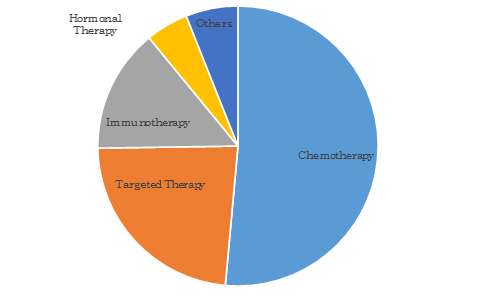
Therapies strategies
Cancer can be managed with different therapies, of them gene induced therapy is a procedure intended to treat a disease by genetically modifying the cell of the patient. Genes, gene segments or oligonucleotides are transferred into patient cells. Gene transfer therapy can be done either in vivo approach or ex vivo approach. Gene therapy aims to modify, delete or replace abnormal gene of the target cell. Target cells may be malignant primarily or metastatic nodules, circulating tumor cells or dormant stem cells or specific cells such as T-cell lymphocytes or dendritic cells.
Oncolytic virotherapy shows improvement in the cancer patients who suffered a non-related viral infection or who are vaccinated earlier. It largely attributed to the production of interferon and tumor necrosis factors (TNF) in response to viral infection, but oncolytic viruses are being designed to lyse only cancerous cells.
Graphical statistics for different therapies of cancer
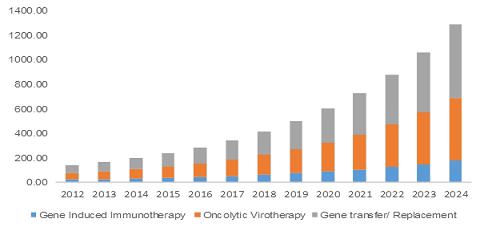
Cancer associations in the world
-
American Cancer Society
-
American Childhood Cancer Organization
-
Acoustic Neuroma Association of Australia
-
American Gastroenterologist Association
-
Association of International Cancer Research
-
Association for the study of Lung Cancer
-
Association of Community Cancer Centres
-
Association of population-based cancer registers in Germany
-
Australian association of smoking cessation professionals
-
Australian Prostate Cancer Research
-
Avon Breast Cancer Crusade
-
Bangladesh Cancer Society
-
Breast Screen Australia Program
-
Bulgarian Cancer Association
-
Canadian Association Of Pharmacy In Oncology
-
Canadian Cancer Society
-
Cancer Association of South Africa
-
Cancer Council Australia
-
Cancer Research institute
-
Cancer Research UK
-
Cancer Society Brazil
-
Children’s Cancer Association
-
Children’s Cancer and Leukemia Group
-
Dutch Cancer Society
-
Dutch Cancer Registry
-
Egypt Cancer Society
-
European Organization For Research And Treatment Of Cancer
-
Foundation for women’s cancer
-
French Cancer Society
-
German Cancer Society
-
German Society of Radiation Oncology
-
Health Canada
-
Hong Kong Neuro-Oncology Society
-
Indian Cancer Society
-
International Agency of Research and Cancer
-
International Lung Cancer Consortium
-
Japan Lung Cancer Society
-
Kidney Cancer Association
-
Korean Cancer Association
-
Leukemia & Lymphoma Society
-
Lung Cancer Canada
-
Ministry of Health – Armenia
-
National Brain Tumor Society
-
National Cancer Institute
-
National Lung Cancer Partnership
-
Oral Cancer Foundation
-
Ovarian Cancer Australia
-
Pancreatic Cancer Action Network
-
Prostate Cancer Canada
- Saudi Oncology Society
- Singapore Cancer Society
Pharmacy companies dealing with cancer drugs
-
Roche
-
Novartis
-
Celgene
-
Johnson & Johnson
-
Bristol-Myers Squibb
-
Lilly
-
Takeda
-
AstraZeneca
-
Merck & co.
-
Amgen
-
Pfizer
-
Astellas
-
Bayer
-
Otsuka
-
Sanofi
Medical universities in Australia
-
Australian National University Medical School
-
Sydney Medical School
-
University of New South Wales
-
Western Sydney University School of Medicine
-
University of Wollongong graduate School of Medicine
-
University of Newcastle School of medicine and Public Health University of New England School of Rural medicine
-
University of Notre dame School of Medicine, Sydney
-
Bond University
-
Griffith University School of Medicine
-
James Cook University School of Medicine and Dentistry
-
University of Queensland School of Medicine
-
University of Adelaide Medical School
-
Flinders University School of Medicine
-
Melbourne Medical School
-
Monash University
- Deakin University School of medicine
-
University of Western Australia
-
Curtin University
To share your views and research, please click here to register for the Conference.
To Collaborate Scientific Professionals around the World
| Conference Date | September 17-18, 2018 | ||
| Sponsors & Exhibitors |
|
||
| Speaker Opportunity Closed | Day 1 | ||
| Poster Opportunity Closed | Click Here to View | ||
Useful Links
Special Issues
All accepted abstracts will be published in respective Our International Journals.
Abstracts will be provided with Digital Object Identifier by







